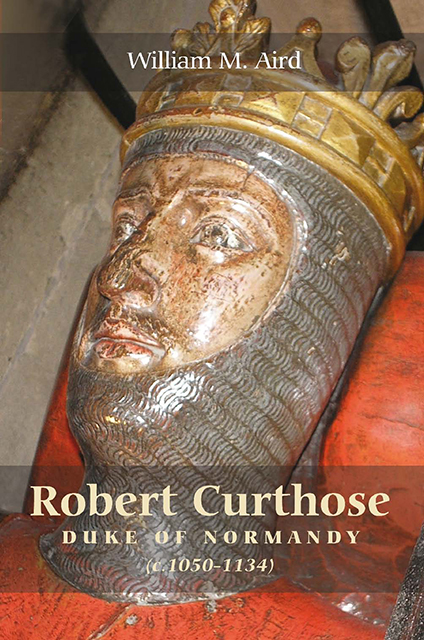Book contents
- Frontmatter
- Contents
- Dedication
- Acknowledgements
- Abbreviations
- Maps
- Genealogy: The Family Connections of Robert Curthose
- Introduction
- Chapter One Childhood
- Chapter Two The Dutiful Son
- Chapter Three The King's Son
- Chapter Four The Duke of Normandy, 1087–1096
- Chapter Five Miles Christi: The Soldier of Christ, 1095–1099
- Chapter Six The Returning Hero, 1100–1106
- Chapter Seven The Captive
- Epilogue
- Bibliography
- Index
Chapter Five - Miles Christi: The Soldier of Christ, 1095–1099
Published online by Cambridge University Press: 03 March 2023
- Frontmatter
- Contents
- Dedication
- Acknowledgements
- Abbreviations
- Maps
- Genealogy: The Family Connections of Robert Curthose
- Introduction
- Chapter One Childhood
- Chapter Two The Dutiful Son
- Chapter Three The King's Son
- Chapter Four The Duke of Normandy, 1087–1096
- Chapter Five Miles Christi: The Soldier of Christ, 1095–1099
- Chapter Six The Returning Hero, 1100–1106
- Chapter Seven The Captive
- Epilogue
- Bibliography
- Index
Summary
The Councils of Clermont and Rouen, November 1095 to February 1096
In the autumn of 1095, Pope Urban II toured France, promoting church reform. At the close of a council held at Clermont in the Auvergne, the pope delivered a sermon which inspired thousands of Western Christians to undertake an arduous pilgrimage. Although Urban's exact words are a matter of debate, it was understood as a call to liberate the churches of the East and, in particular, the holy city of Jerusalem.
After Clermont, Urban continued his tour of France and although he did not enter Normandy, he was at Le Mans in February and at Tours in March 1096. The message concerning Urban's call to arms was brought back to Normandy by those who had attended the council at Clermont including Odo, bishop of Bayeux, Gilbert, bishop of Évreux, and Serlo, bishop of Sées, together with the envoys of their episcopal colleagues. Less formally, but perhaps more effectively, rumours of a great stirring among the people undoubtedly made their way into the duchy. In February 1096, a provincial council was held at Rouen, but although there was no direct mention of the proposed expedition to the East the council dealt with matters germane to Urban's reform programme and the decrees issued at Clermont, stopping short of a call to arms.
The canons issued at Rouen prepared the way for the armed pilgrimage to the East. Part of the papal scheme was to ensure that Christian society cleansed itself of abuses that might impair the path to salvation. It was imperative to bring peace to Western Europe and allow its knights to re-direct their energies to the service of the Church. To this end the Council of Rouen re-imposed the Peace of God, which was to be strictly observed. The canons guaranteed the safety of all churches, monks, clergy, pilgrims, merchants and agricultural workers. The form of an oath, sworn on relics, to uphold the Truce of God was also given, and all men over the age of twelve were to swear on pain of excommunication. The canons of the Council of Rouen aimed at establishing peace in Normandy, the essential precondition for allowing a Norman contingent to join the great expedition to the East.
Orderic followed his account of the canons of the Council of Rouen by affirming that they were ineffective in Normandy because there was great unrest at the time.
- Type
- Chapter
- Information
- Robert `Curthose', Duke of Normandy [c. 1050-1134] , pp. 153 - 190Publisher: Boydell & BrewerPrint publication year: 2011



